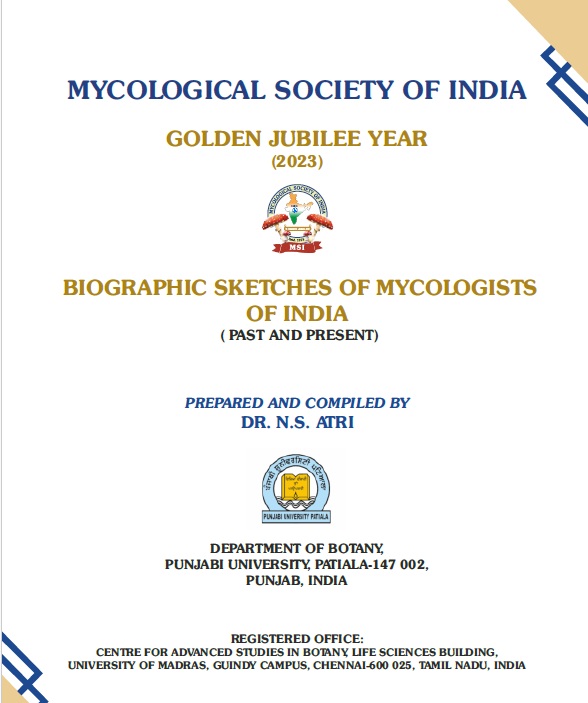From the Editor’s Desk
The Presidential address by Prof. T. Satyanarayana during the 41 annual meeting of the Mycological Society of India held at the Department of Botany, Punjabi University, Patiala on February 23, 2015 is a welcome call to the mycological fraternity to work for the growth and rejuvenation of the subject of mycology at all levels so that it becomes the subject of preference for study by the youngsters. This can be done by inculcating interest in the field of mycology at school, college and university level for which course curricula have to be designed by including socially relevant applied topics of the subject in the syllabus. To generate interest in the subject and to make it more attractive, there is a need to assign small projects in the identification and characterization of fungi affecting our surrounding environment including multipurpose plants, crops, food stuffs, fruits, vegetables, etc. and on those growing in lawns, along road sides and forested areas during monsoon season. This will definitely help the youngsters in understanding the role of fungi in nature and create interest in them to uptake further studies on various aspects of these microbes when such students join Post Graduate Programmes in the Colleges and Universities. Mycologists need to play a proactive role at all levels especially in the University Departments and Research Institutes to make the researches in mycology more attractive and application based so that bright students are attracted to nurture the field. It is essential to undertake collaborative projects with various scientists specialized in different branches of science in general and biology in particular. This will definitely help to produce a new generation of mycologists well versed in basic and applied aspects, which is the need of the day to take the field of mycology to its pristine glory that once it enjoyed in India .

N.S. Atri
Editor: KAVAKA
Professor of Botany
Punjabi University,
Patiala-147 002, Punjab
INDIA
























